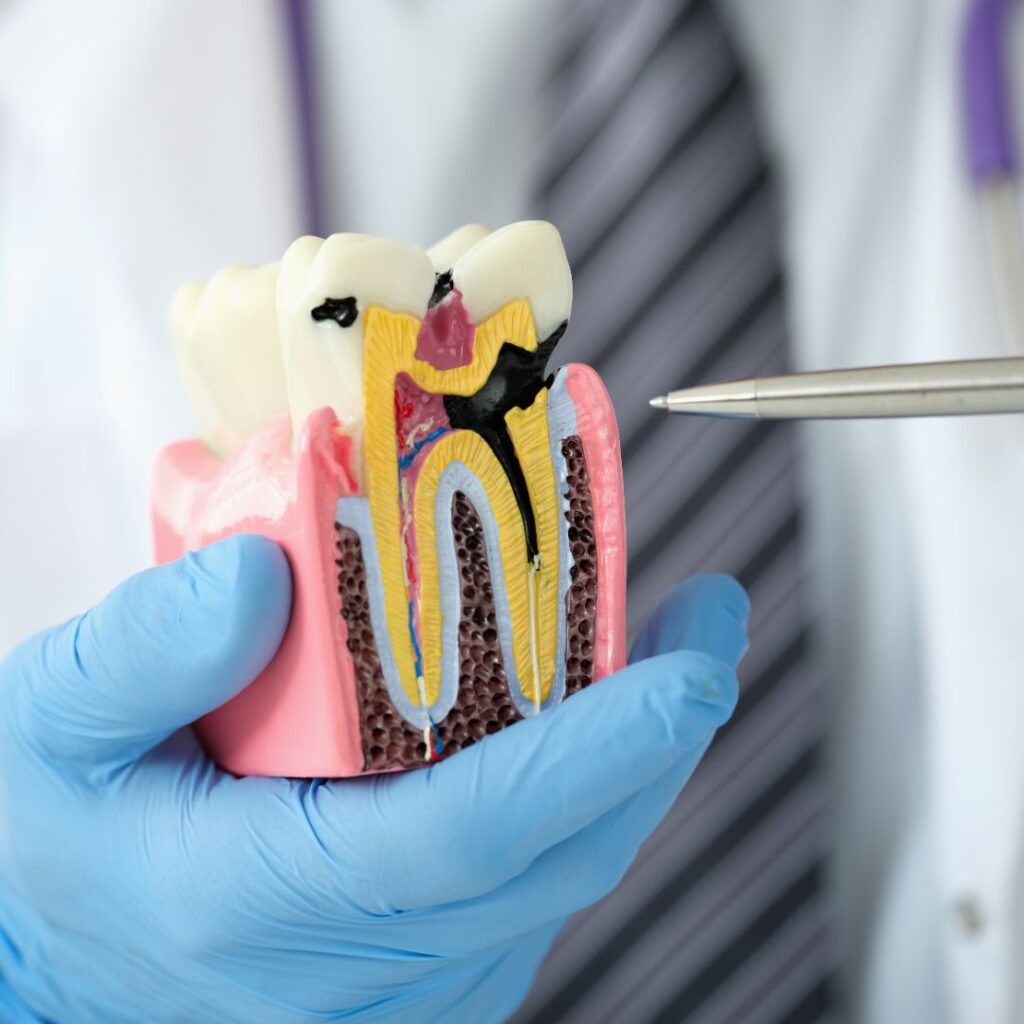How To Tell If You Have A Cavity

Tooth decay is caused by bacteria in the mouth that eats away at tooth enamel. This can lead to a cavity (a hole in the tooth). A cavity in your tooth doesn’t always have symptoms at first, but as it grows into the deeper layers of your tooth, you may feel it. Common cavity symptoms include tooth pain or sensitivity and visible changes in the tooth, like holes or pits. This article explains how cavities look and feel, what happens if they go untreated, and how dentists diagnose them.
Visible Small Cavity Signs
You may not notice a cavity right away since the changes are visually small. Also, it’s possible to have a cavity and not feel anything. However, even though small cavities may have visible changes, most people don’t examine their teeth routinely, especially those that are more difficult to see in the back of your mouth. Teeth in the back of the mouth are where cavities often occur. Cavities most commonly pop up on chewing surfaces and between teeth.1 Both of these areas are difficult to see yourself.
Warning signs of a cavity include:
- White spots on the teeth
- Spots that turn darker shades of gray, brown, or black
- Continually getting food trapped between your teeth
Invisible Cavities
An invisible cavity (also called a hidden cavity) is one you can’t see with the naked eye. Usually, that’s because the cavity is between teeth. Dental X-rays can catch early cavities between teeth and those not yet visible on the tooth’s surface. Researchers have found that X-rays increase the diagnosis of hidden cavities by nearly 10 times.3
How Cavity Symptoms Feel (or Don’t Feel)
It can help to understand what a cavity feels like. Cavity symptoms include:
- Tooth pain that can be sharp or dull
- Tooth pain that occurs when you bite down
- Tooth sensitivity (to hot, cold, or sweet things)
- Feeling pits or holes in your tooth
Researchers call cavities one of the most prevalent diseases among children globally.
Seeing a Dentist: How to Tell for Sure
While cavities offer some visual signs, they are not always on visible parts of your teeth. Cavities are sometimes in between teeth and in the back of your mouth. To be sure, you’ll need to see a dentist, who will visually examine your teeth and, if necessary, do an X-ray.